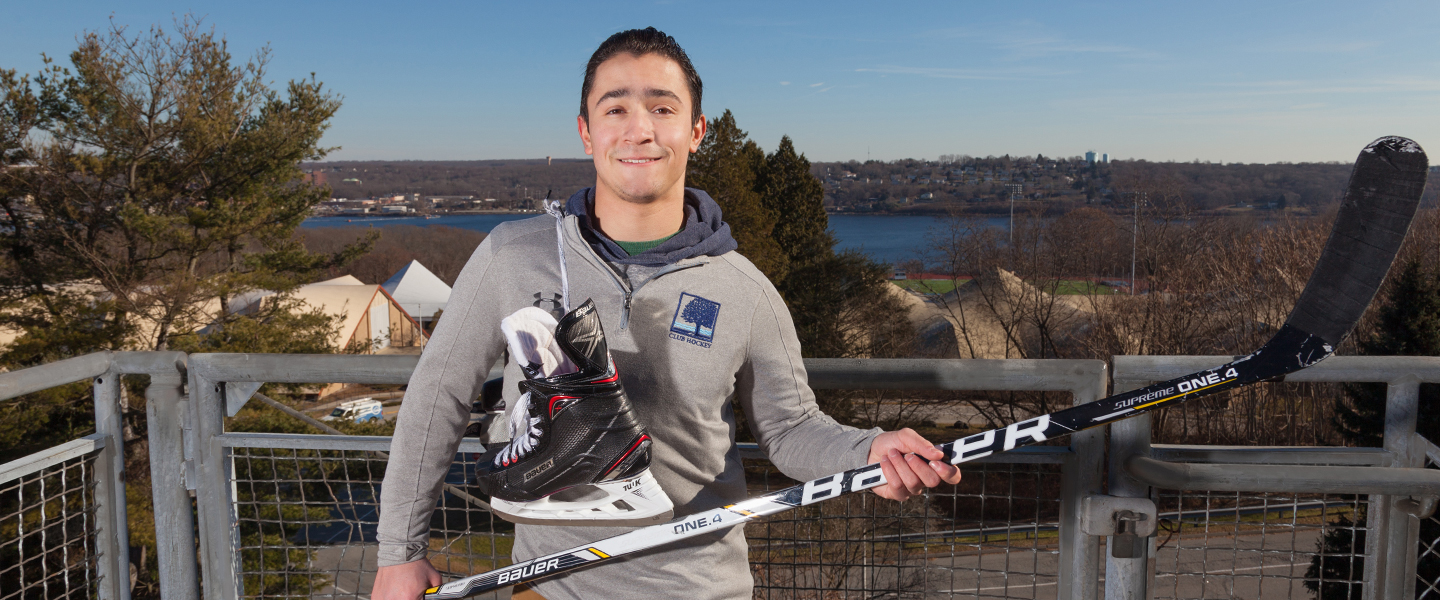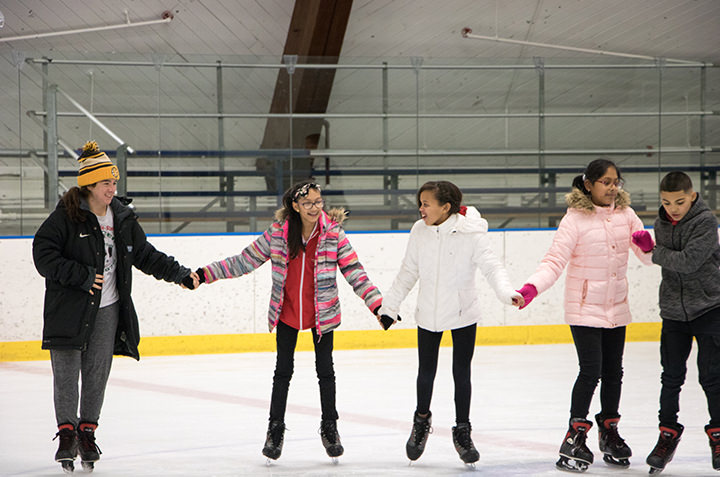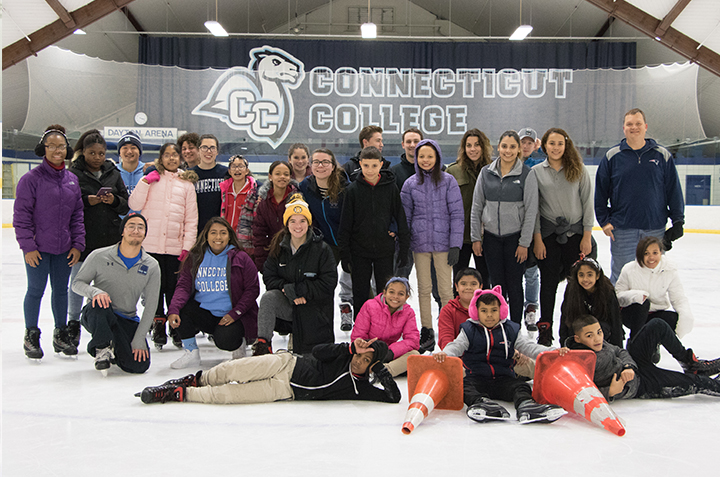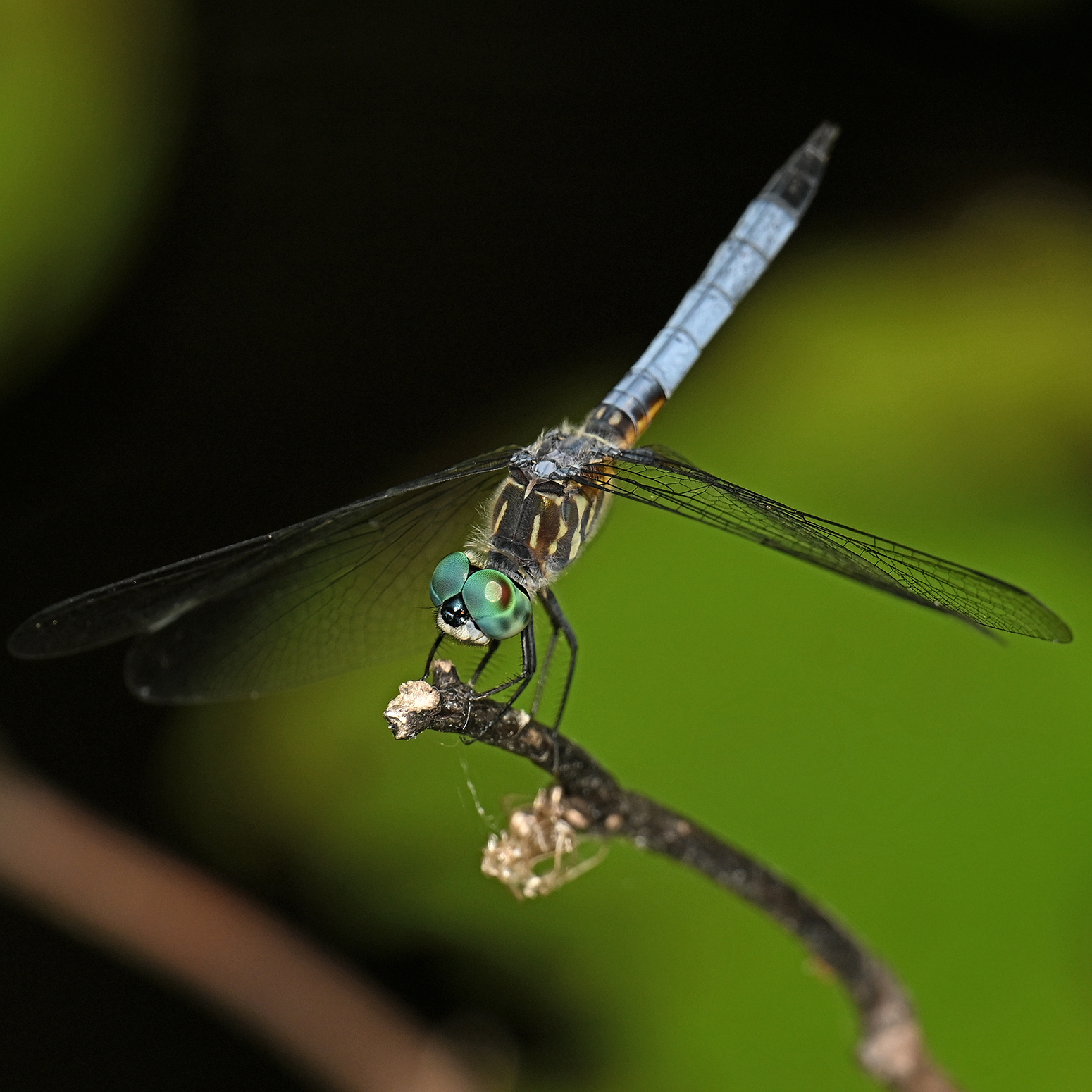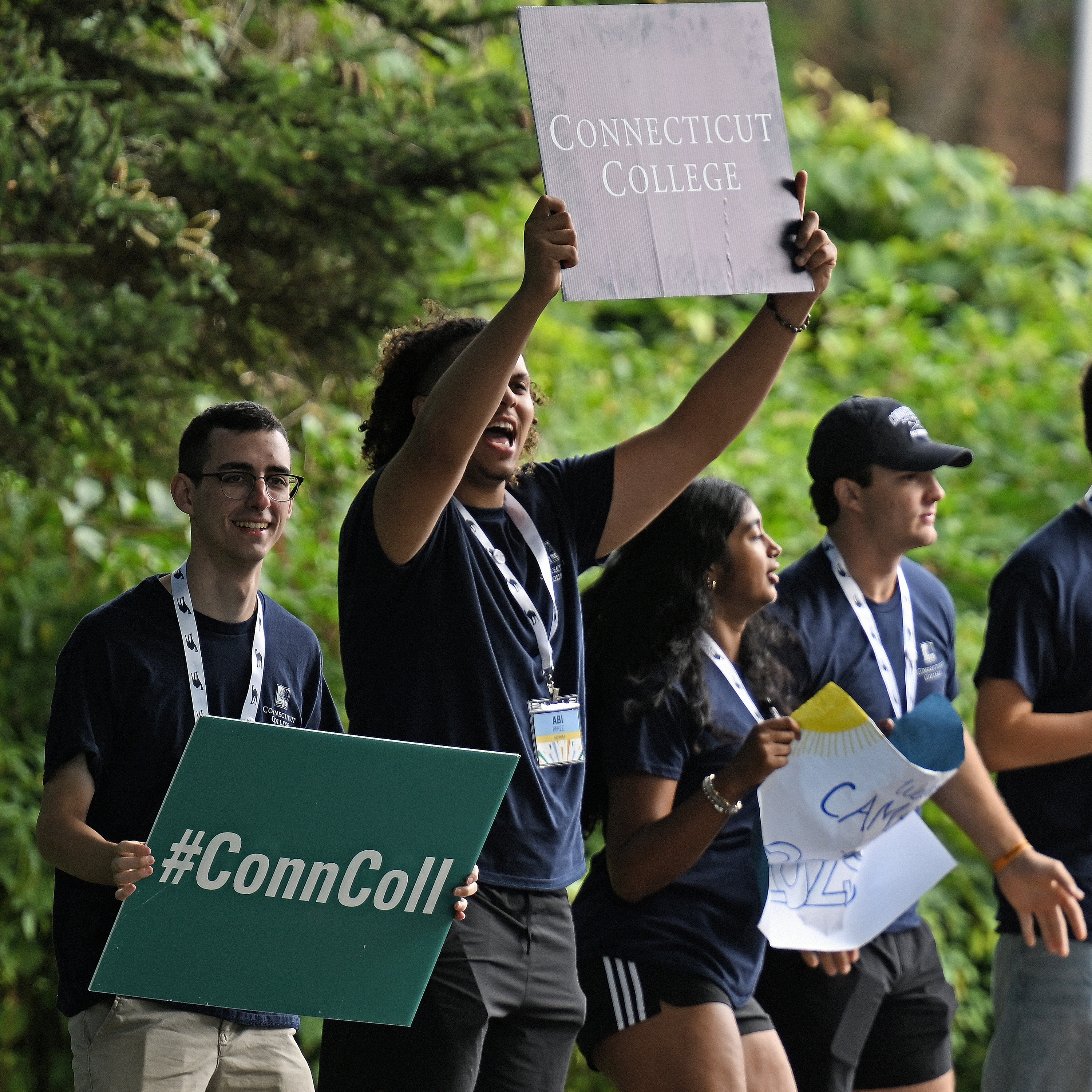
On the Ice
Alex had never seen snow, let alone skated on ice.
The seventh grader, whose family recently immigrated to New London from Ecuador, had never been inside a skating rink. But just four sessions into Conn’s Learn to Skate program, Alex laces up a pair of black hockey skates—with a little help from a member of Conn’s club hockey team—and hits the ice.
Rocio Tinoco ’17, Alex’s teacher at Bennie Dover Jackson Middle School, watches carefully as Alex races confidently around Conn’s Dayton Arena, a blur of red and khaki as he glides by.
“He had never been on the ice before, and look at him,” Tinoco says. “It’s amazing to watch.”
Alex is one of nearly 30 newly arrived and dual language middle schoolers learning to skate through Conn’s program, started by Cameron Segal ’20 as a means to introduce the sport of hockey to students who have recently immigrated to the U.S.
Segal, an American studies major who is also pursuing a secondary teaching certification, grew up playing hockey where he was often teased by teammates and competitors because of his olive complexion. At Conn, he joined the Cities and Schools Pathway, one of 11 Integrative Pathways offered through Connections, Conn’s reinvention of the liberal arts. Modeled after the College’s innovative centers for interdisciplinary scholarship, Pathways allow students to explore issues they are passionate about by intentionally combining their academic major with interdisciplinary study and off-campus learning through study away and a relevant internship. As students follow their Pathways, they develop a question that is meaningful to them; exploring this question helps inform and guide their Connections experiences.
